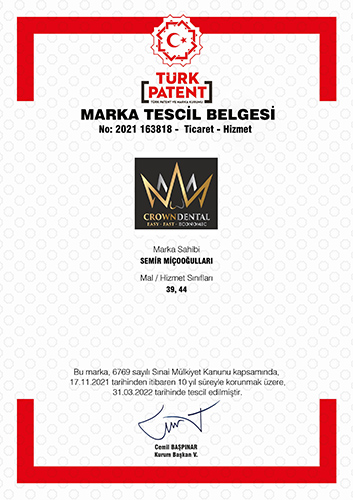Dental implant ; It is a method applied to compensate for teeth lost due to caries, trauma or a different reason.
These artificial tooth roots, which are produced in the form of screws, are used by fixing them to the jawbone. Implants obtained from titanium alloy are supported with zirconium or porcelain veneers.
Compared to prostheses and traditional veneers, implant treatment offers more aesthetic, functional and permanent results. These structures, which act as the basis for the teeth, also serve as a support for the bridge teeth.
On the other hand, they are widely preferred because of their very good tissue compatibility. In patients with a single tooth, it is possible to apply an implant without the need to cut adjacent teeth .
In those with multiple tooth loss, implants replace the root of the tooth, allowing the person to have fixed teeth. The best treatment for those who do not want to use a total prosthesis is the use of implants.
Dental Implant Advantages
- It is no different from the natural tooth appearance.
- It has a very durable structure as it is designed to fuse with bone.
- It is possible that unsuitable prostheses will be displaced in the mouth and cause difficulty in speaking. However, there is no such risk with dental implants.
- It is possible for dentures to cause difficulties when eating. However , implants function just like a normal tooth. Therefore, it allows you to consume food without pain and without additional effort.
- When a tooth is lost, a gap occurs in the place of the root. The implant , on the other hand, fills that area just like a real tooth, preventing you from feeling the absence of the missing tooth.
- Adjacent teeth do not need to be reduced. Existing teeth are not damaged.
In Which Situations Is the Dental Implant used?
- Tooth loss caused by accident, decay, gum disease and similar factors
- The patient has a genetically missing tooth.
- People with advanced osteoporosis and who cannot use prostheses
- Patients who lost a single tooth
- Absence of molars
Who Cannot Have Implant Treatment?
- undergone radiotherapy to the head and neck region are not suitable candidates for implant treatment.
- Implant application may be inconvenient in people with incomplete bone development .
- Smoking delays the healing of wounds and reduces the success rate of treatment. Therefore, effective results may not be obtained in excessive smokers.
- High blood pressure, autoimmune diseases, hemophilia, diabetes etc. In people with systemic diseases, these conditions should be taken under control before the implant operation is performed.
- Implant treatment may not be appropriate for those who use an immunosuppressive drug (for example , corticosteroid and bisphosphonate ).
Dental Types of Implants
- Endosteal Implants : This type of implant is placed directly into the jawbone. It has a cylindrical or conical structure.
- Subperiosteal Implants : They are used by placing them under the gum tissue or in the jawbone. It has a metal base. If the patient’s bone tissue is not in a structure to allow intraosseous implantation , subperiosteal implants are used.
How is the Dental Implant Applied?
The answer to this question depends on the person’s face and bone structure, implant type, bone density, and the number of missing teeth. The methods used in the treatment are:
- The cavity formed by the extraction of the patient’s tooth is filled with an implant .
- The closed method can also be used. In the meantime , the area where the implant will be applied is not cut. Filep won’t be opened. A cavity is created by the laser and the implant is placed here.
- Implant can also be applied over the mucosa. This technique is often preferred for mini implants .
- The classical surgical method is applied by opening a gap in the jawbone and placing the implant there. Then stitches are thrown.





